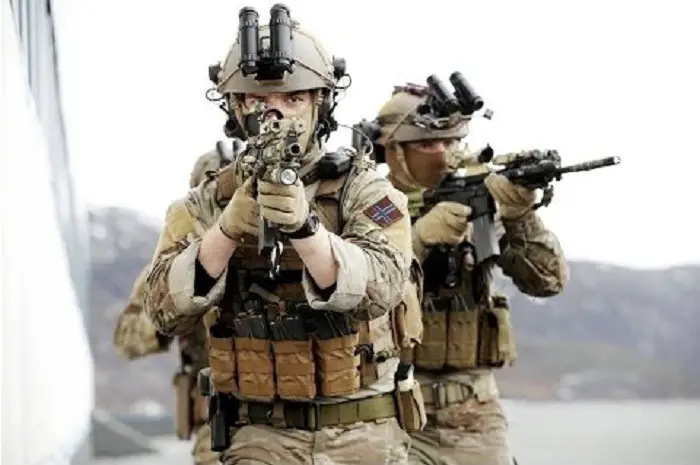Marinejegerkommandoen (MJK) is the Norwegian maritime special operations forces unit, established in 1953. It is the oldest of Norway’s two special operations forces.
MJK is employed in the full spectrum of special operations, including unconventional warfare, guerrilla warfare, special reconnaissance, recovery or protection of ships and oil installations, various counter-terrorism missions, hostage rescue and direct action.
As is expected from any special operations forces, the training to become an MJK operator is long and arduous, taking a minimum of two years and further augmented by specializing courses during the following contract period, such as combat medic training, sniper training and forward air control (FAC) training.
During selection, candidates are put through extremely demanding tests. During one of these, each of the candidates (which at this point of the selection consists of about 5-8 men out of an original 100-200) must carry a 60 kg (130 lb) rucksack while being hunted by an “enemy force” consisting of Home Guard soldiers, K-9 units and police. At some point during the test, the candidates are captured and must endure 36 hours of tactical questioning.
Marinejegerkommandoen is on national counter-terrorism standby to assist the Norwegian Police if required, and is also on continuous standby for international operations. Marinejegerkommandoen has participated in a number of international operations. The unit conducted operations in Afghanistan in 2002 (Task Force K-Bar), in 2003 and in 2005-2006, as part of Operation Enduring Freedom. The unit was also involved in the training of the Afghan National Police Crisis Response Unit around Kabul in 2008-2009, relieving Forsvarets Spesialkommando for a short period.
















